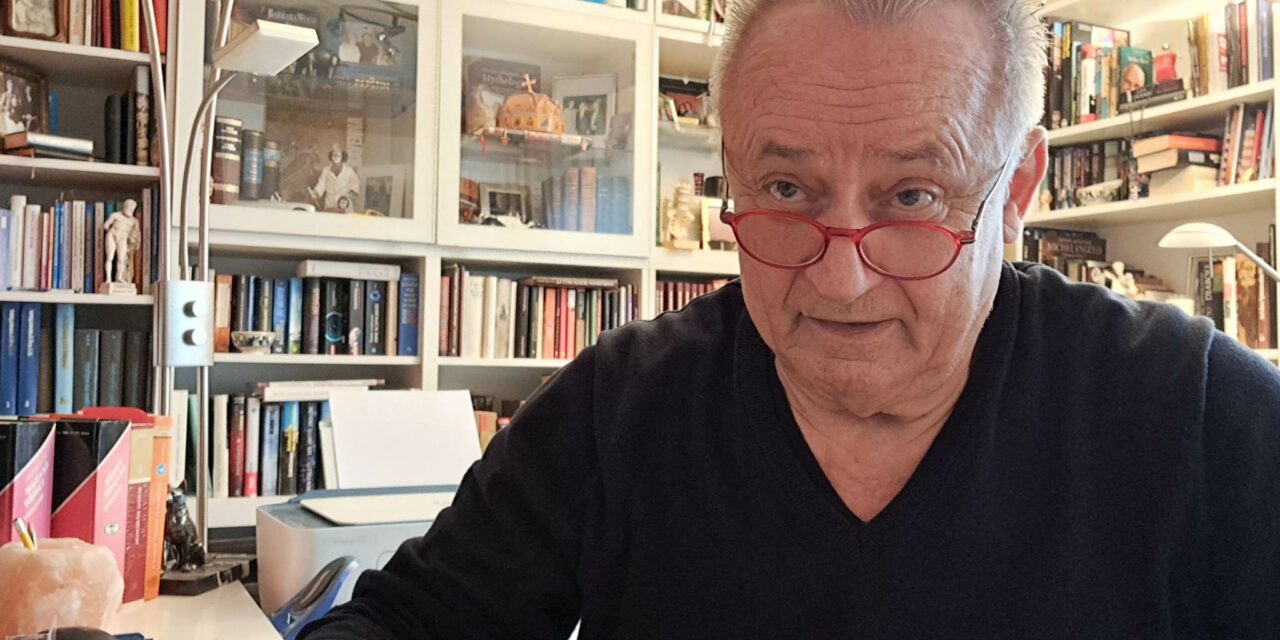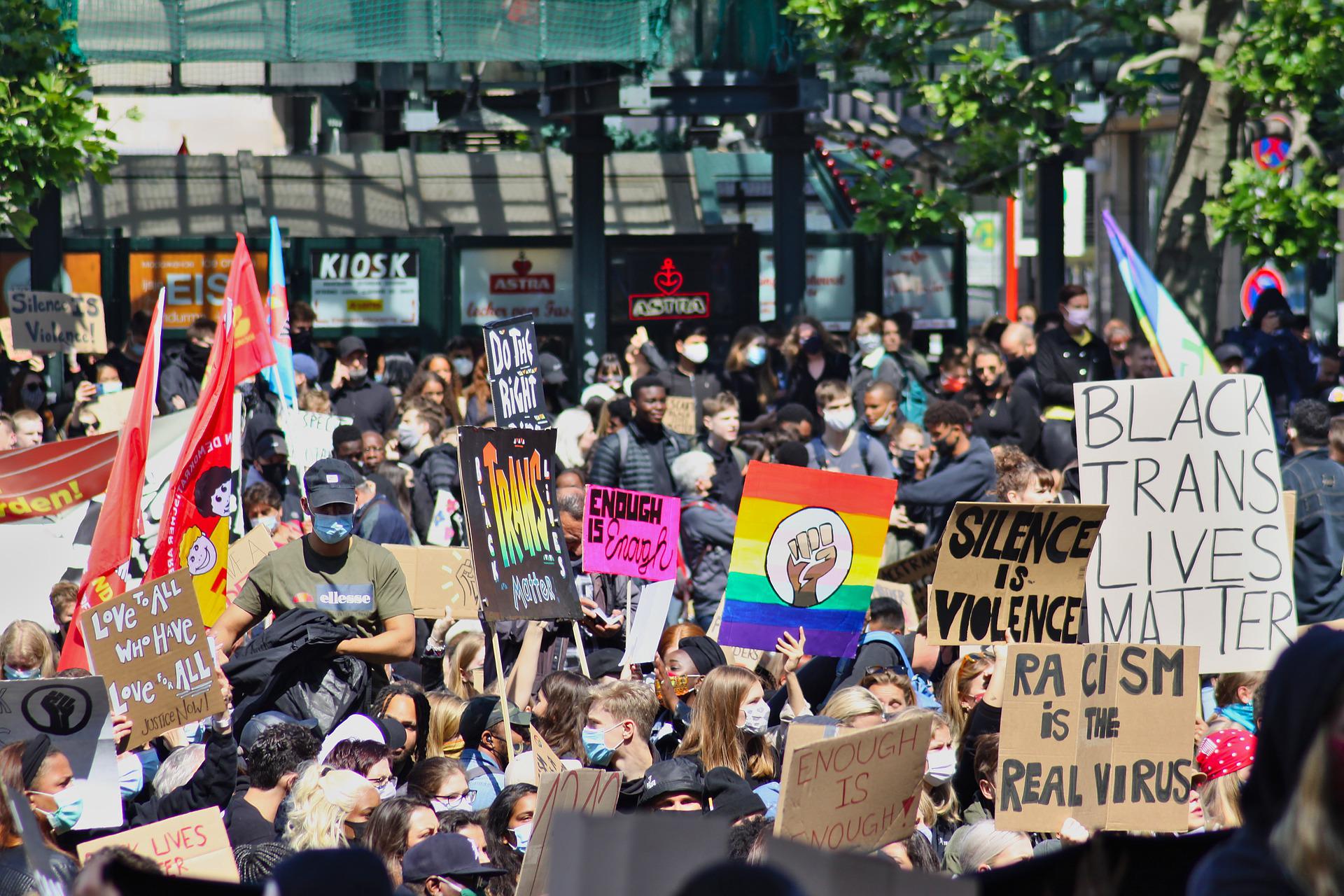The question is not only asked by me, but also by many other Hungarians "out there", especially those who have been living in the western part of Europe, in Germany, for several decades.
Over the long decades, the majority of Hungarians in Germany had to realize that their "Hungarian perception" and outlook on life, their environment - and especially - the former "West German" citizens, simply did not understand them. This incomprehension has now progressed to such an extent that the vast majority of Germans - led by their politicians - view the current Hungarian government's policy with confusion.
I have been living in Germany for nearly 40 years, or more precisely, since then I have been leading a dual life between Germany and Hungary. However, dual citizenship is not only about traveling back and forth between the two countries, but also about the fact that although I am more often in Germany, my spirit and soul are almost constantly in Hungary. Or I could say it stayed.
In the first decades of our stay here, we tried to get to know and travel to the neighboring countries, Switzerland, Italy, France and Austria, and then after ten years, sometime in the 90s, we also reached Luxembourg.
But how does Luxembourg come here?
So that in this small Western European principality, I had a decisive experience: in the church where we went to mass on Sunday, to my greatest surprise, the priest preached in German, although in dialect.
Since I did not yet understand the reason for this, after the mass I asked the people there how this could be? I myself thought that the questions I asked in German were answered in German only because they knew the language. Then they told me with a smile that the language of the people there is Luxembourgish German, or Lëtzebuergesch.
This was the moment when I began to guess the answer to the question that concerns me to this day: why don't the Germans understand us Hungarians? Our behavior, our habitus and our perception of the world.
I had a similar experience in the Netherlands, where they also speak a language that is much more like the so-called North Germans.
it resembles a dialect of Plattdüütsch rather than an independent language. But this applies to the German dialect of the Belgians, Flemish, to the German language of the Swiss, the so-called Schwyzerdütsch, the dialect of the Austrians, the language of the Principality of Liechtenstein, the local dialect of the South Tyroleans (Autonome Provinz Bozen) in Italy, or the Alemannic dialect of the Walser people in northern Italy, and perhaps even the language of the Danes.
And that Germany, which after its unification in 1989 has a population of 80 million, once consisted of many small duchies and kingdoms, each of which spoke German, but in fact only one dialect of it.
Each "little country" - one or the other of which was around the same time as Hungary after Trianon - had its own politics, its own economic goals, its own warfare, for many centuries. And this also determined the way of life of the citizens and peasants living there for generations.
Each little statesman considered his own purpose in life to be the most important and practically did not even care that the neighboring principality also spoke the same language.
Therefore, national consciousness did not develop in them, because they took it for granted that "everyone" around them spoke the language they spoke.
If one principality went to war against another and lost land, only the lords of the population living there changed, but not their language. Economic change may have occurred, but no essential change in the national character.
This was not the case with us Hungarians
The medieval and modern wars were not fought between one of our counties and another; if we had a war, it brought not only an economic change, but also a national change that could change the language, culture and relationship of the people to their past.
For the Hungarians, it became an existential question to remain united, because only this could ensure the linguistic and cultural independence of our people, as well as their separate status. The survival.
What did independence mean to the German citizen?
Not much. When the duchies wrestled with each other, nothing else happened to the people than "from bucket to bucket". And when German unity was born on January 18, 1871, with the assistance of Chancellor Bismarck, its political guarantor was the Prussian hegemony, which had already developed by then, which eventually added the emperor to this "unity".
But all of this was not due to the flaring of their patriotic feelings, because they did not have it - just as the European Union was not built on patriotic feelings when it was born. Both were motivated by economic constraints and increasing competitiveness, so they did not create a unified national consciousness, only a community of interests.
The German provinces that were created as successors to the former principalities remained separate units, with their own public administration, their own prime minister, their own ministerial apparatus and their own school system.
And when World War II was started in 1939, it did not happen out of their common national consciousness, but out of individualistic convictions, which by then had been deeply implanted in almost every member of the population - this is how the concept of the "übermensch" was born, i.e. the superiority of one person over another, which gives rise to the right to oppress the sons of another nation.
By now, all of this has been removed from the German citizen, but even to this day he has not been able to "get rid of" the fact that he evaluates his own actions and judges the citizens of the other nation, and in the "certain" knowledge that he is doing the right thing, imposes this on that particular other as well, while also educating him. And there is no trace of patriotic feeling in this, only the individual thinks this way.
That's why they don't understand us, Hungarians
Although the Germans developed a sense of regional self-identity, it could not further develop into a national consciousness, which is why they do not know - and cannot know - the concept of "national independence" either. His freedom, yes, but that is a completely different concept.
When today's Hungarian government, asserting its more than a thousand-year-old independence - and intending to keep it - opposes the aspirations of a great power, which in the 21st century is represented by the European Union, then the German citizen just shakes his head in bewilderment. He doesn't understand that this country, which has shrunk to ten million people, was able to maintain its existence and independence only because it independentd itself from the oppressive tactics of the bigger ones and, if necessary, bravely opposed them.
The Hungarian government thinks about this national responsibility. It was enough to experience the national tragedy once, as a result of which the Hungarians lost two-thirds of their territory and half of their population. He lives on Trian, and the nation still lives it today as a dramatic stroke of fate, especially the Hungarians who left there.
Trianon brought something different than the throne disputes between Hesse and Baden-Württemberg, where perhaps a few thousand square kilometers of land, together with the population, went to another duchy, or let's say - e.g. In the case of Baden-Württemberg and Bavaria, it was transferred to another kingdom. The language of the people remained there, as did their folk songs, dances and culture.
On the other hand, the Hungarians who were separated into neighboring countries could not (even today!) use their language freely, could not study Hungarian, and their museums and theaters were closed.
This is the big difference that Germans don't understand, since one way or another, almost half of Europe is German. And their world was never turned upside down because of a small fight between princes.
After all, the most important thing is the sense of community! they say instructively while pointing a finger at us.
And they will never understand the Hungarians.
We cannot expect understanding from a people who have been made "faceless" in the grind of history, for whom nationalism has been degraded into a "swear word", and who raise their eyebrows in amazement when a tear or two appears in the eyes of the Hungarians who sing it during the singing of the Hungarian national anthem.
(TTG)
Featured Image: Screenshot












